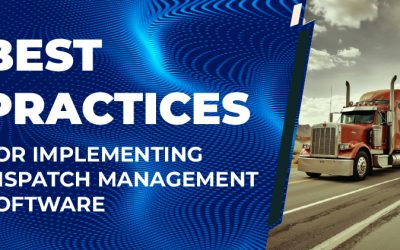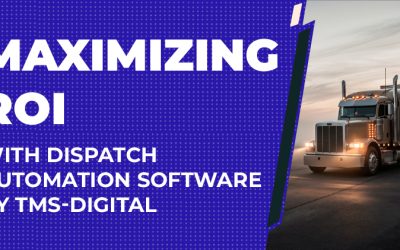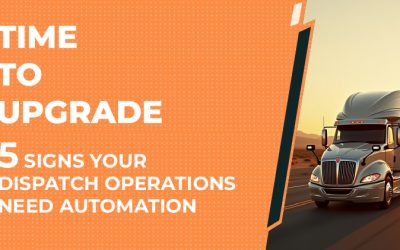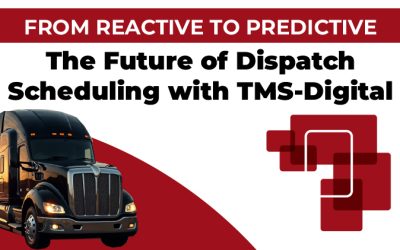
In the dynamic world of logistics, businesses are constantly seeking ways to enhance efficiency and reduce costs. One strategy gaining prominence is the implementation of Less Than Truckload (LTL) shipping. This blog explores the ins and outs of LTL strategies, offering insights into how businesses can optimize their logistics operations and the key considerations before implementing less than truckload strategies.
Understanding Less Than Truckload (LTL)
Less Than Truckload (LTL) shipping refers to a freight shipping method where a shipment does not require an entire truck. Instead, it shares space with other shipments from different companies within the same truck. This method is particularly advantageous for businesses with smaller loads or shipments that don’t fill an entire trailer.
Advantages:
Cost Efficiency: LTL allows businesses to pay only for the space they use, reducing shipping costs.
Increased Flexibility: Ideal for businesses with varying shipment sizes, LTL provides flexibility in adapting to changing shipping needs.
Access to Specialized Services: LTL carriers often offer additional services such as liftgate delivery or inside pickup, catering to specific shipping requirements.
LTL shipping is a viable option in various scenarios, including:
Small to Medium-sized Shipments: When a business has shipments that are too large for parcel carriers but not large enough to fill an entire truck.
Periodic or Irregular Shipments: For businesses that experience fluctuations in their shipping volume, LTL offers a cost-effective solution without committing to a full truckload.
Multiple Destinations: LTL is suitable when shipments must be delivered to multiple locations, optimizing route efficiency.
LTL and Full Truckload (FTL) are two distinct shipping methods with key differences:
Size of Shipment: LTL is ideal for smaller shipments that don’t require an entire truck, while FTL is more suitable for larger shipments that can fill a full truck.
Cost Structure: LTL is generally more cost-effective for smaller shipments, as costs are shared among multiple shippers. FTL, on the other hand, maybe more economical for large, dedicated shipments.
Transit Time: FTL shipments often have shorter transit times since they go directly from the origin to the destination without stops. LTL shipments may have longer transit times due to multiple stops for different shipments.
Understanding these differences is crucial for businesses to choose the most cost-effective and efficient shipping method based on their specific needs and the nature of their shipments.
Key Considerations in LTL Implementation
In Less Than Truckload (LTL) implementation, key considerations are pivotal in optimizing logistics operations. Freight consolidation, a practice of combining multiple smaller shipments into one larger shipment, proves instrumental in cost efficiency, reducing the overall cost per unit for each shipper, lessening the environmental impact with fewer trucks on the road, and improving transit times through streamlined processes.
Understanding freight class and density is equally crucial as it ensures accurate pricing by classifying freight based on various characteristics and optimizing density to maximize truck space efficiently. Moreover, route optimization emerges as a significant factor, and technology plays a vital role. Real-time tracking through GPS technology, data analytics to identify patterns and optimize routes, and the use of Transport Management Systems (TMS) contribute to efficient planning, execution, and overall optimization of LTL routes.
As businesses embrace these considerations, they enhance cost-effectiveness and contribute to a more sustainable and streamlined logistics process, staying competitive in an ever-evolving market.
 Technology and LTL Optimization
Technology and LTL Optimization
Implementing advanced technology is integral to optimizing Less Than Truckload (LTL) shipping processes. Transport Management Systems (TMS) is a cornerstone, streamlining LTL operations by automating and optimizing key processes. TMS software facilitates efficient order management, route planning, and load optimization, ensuring that resources are utilized effectively, and costs are minimized.
Tracking and Visibility represent another technological advancement critical to LTL optimization. Real-time tracking offers unparalleled visibility into the movement of shipments, allowing businesses to monitor the progress of goods in transit. This enhances customer satisfaction by providing accurate delivery estimates and enabling proactive decision-making to address potential delays or disruptions.
Data Analytics also plays a crucial role in LTL logistics. By harnessing the power of data, businesses can gain valuable insights into trends, performance metrics, and areas for improvement. Analytics tools enable companies to make informed decisions regarding route planning, carrier selection, and overall logistics strategy. This data-driven approach enhances efficiency, reduces costs, and contributes to the continuous improvement of LTL processes.
Future Trends in LTL: Navigating the Evolution of Logistics
As the logistics landscape continues to evolve, several emerging technologies are poised to shape the future of Less Than Truckload (LTL) shipping. Blockchain technology is anticipated to play a significant role in providing transparent and secure tracking of shipments. The decentralized nature of blockchain ensures the integrity of data, reducing the risk of errors and enhancing trust throughout the supply chain.
Adopting Artificial Intelligence (AI) and Machine Learning (ML) is also expected to revolutionize LTL logistics. These technologies can optimize route planning, predict demand patterns, and improve the accuracy of freight classification, leading to more efficient and cost-effective operations.
Furthermore, the rise of autonomous vehicles is likely to impact LTL strategies. As self-driving trucks become more prevalent, they have the potential to enhance safety, reduce labor costs, and optimize delivery routes. However, regulatory challenges and societal acceptance will play a crucial role in determining the pace of this transformation.
Regarding market trends, the increasing emphasis on sustainability is anticipated to shape the future of LTL strategies. With a growing awareness of environmental concerns, businesses are likely to prioritize eco-friendly transportation methods. This could lead to the development of greener LTL practices, such as integrating electric or hybrid vehicles and optimizing routes to minimize carbon emissions.
Moreover, the ongoing digitalization of supply chains is expected to continue, with businesses leveraging technology to enhance visibility, collaboration, and overall efficiency. Real-time data exchange, cloud-based platforms, and interconnected systems will become integral components of LTL logistics, fostering a more connected and responsive supply chain.
Conclusion
The future of Less Than Truckload (LTL) logistics promises a dynamic landscape shaped by emerging technologies and evolving market trends. As we move forward, blockchain technology, Artificial Intelligence (AI), and Machine Learning (ML) are set to redefine efficiency and transparency in LTL operations. The integration of autonomous vehicles holds the potential to revolutionize delivery processes, although regulatory considerations remain pivotal. Furthermore, a heightened focus on sustainability and the continued digitalization of supply chains will be instrumental in shaping eco-friendly practices and fostering interconnected, responsive systems.
One standout solution for LTL optimization in this evolving landscape is Transport Management Systems by TMS-Digital. Recognized as the top choice for trucking, logistics, and supply chain optimization tools, TMS-Digital is poised to play a central role in the future of LTL logistics. Our software and tools facilitate streamlined processes, automate logistics operations, and enhance decision-making through real-time insights. As businesses navigate the complexities of the logistics industry, TMS-Digital emerges as a cornerstone for efficient, cost-effective, and digitally-driven LTL strategies.
Stay ahead of industry trends, optimize routes, and elevate your logistics game with TMS-Digital. Transform your LTL strategies for the future.









